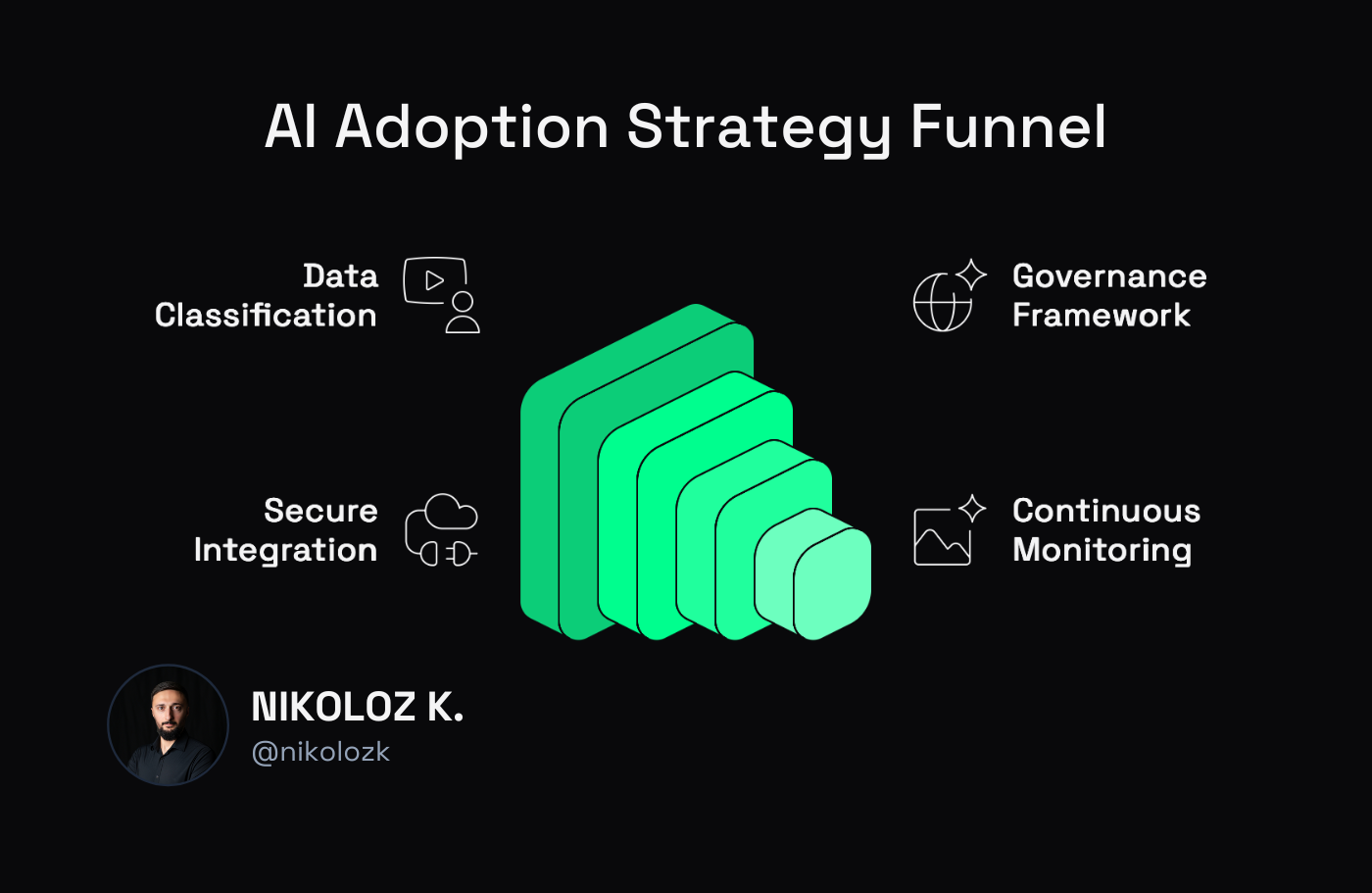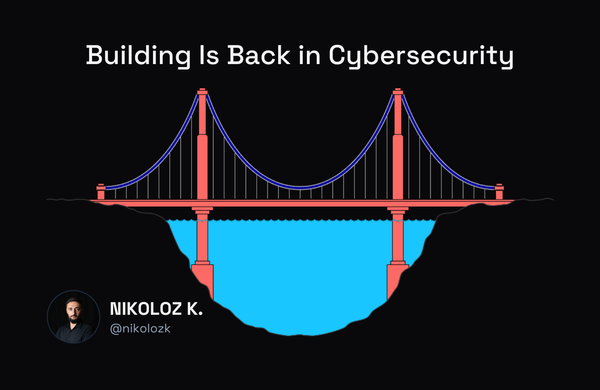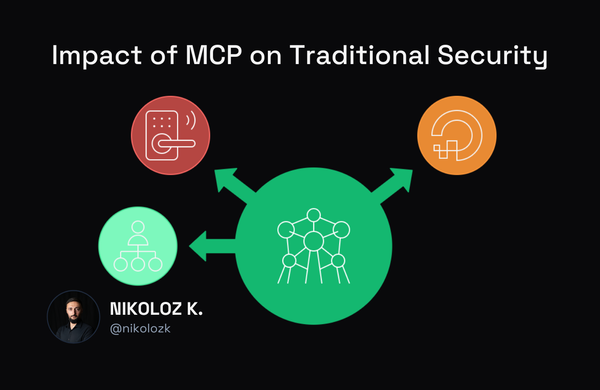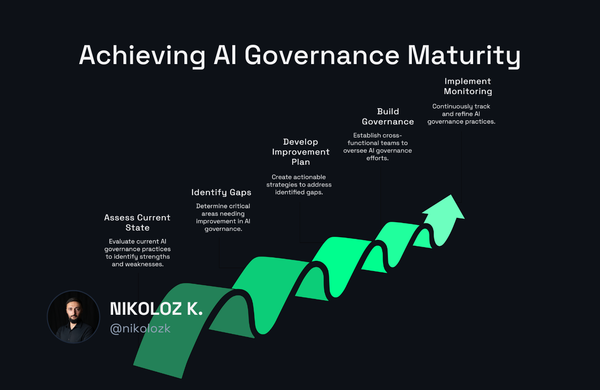Why Your Growing B2B Company Shouldn't Build AI Infrastructure (And What to Do Instead)

Nikoloz Kokhreidze
Most growing B2B companies are making the same expensive mistake with AI that they made with cloud computing 15 years ago. Here's why building your own AI infrastructure will kill your competitive advantage and what smart leaders are doing instead.

The Expensive Déjà Vu of AI Infrastructure
Remember 2010? Every technology leader insisted that cloud computing was "too risky" for serious business applications. Companies burned through millions building and maintaining their own data centers, convinced that keeping everything on-premises was the only way to maintain security and control.
Fast forward to today, and I'm seeing the exact same pattern with artificial intelligence.
CTOs and engineering leaders at growing fintech, biotech, and SaaS companies are convincing their boards to invest $20-50 million in on-premises AI infrastructure. They're hiring specialized AI teams, purchasing expensive hardware, and dedicating months of development time to build what they believe will be their competitive moat.
But here's the uncomfortable truth: you're not an AI company, and you never will be.
The Mathematics of Competitive Disadvantage
Let's talk numbers that matter to your business growth.
Microsoft invested over $100 billion in AI development and infrastructure. OpenAI has raised $300 billion and employs some of the world's brightest AI researchers. Google's AI division operates with resources that dwarf most countries' GDP.
Your $50 million AI infrastructure budget? It's not even a rounding error in their calculations.
While your engineering team spends 18 months building yesterday's AI models, your competitors are already leveraging today's cutting-edge APIs to deliver superior customer experiences, automate complex processes, and capture market share.
I've seen this play out with three different clients in the past year. Each company delayed critical product launches by 6-12 months while building "proprietary" AI capabilities that were obsolete before they went live.
Is security blocking your next enterprise deal?
Let's discuss how fractional CISO services can unlock your pipeline without the full-time overhead.
The Real AI Security Challenge (It's Not What You Think)
Here's where most founders and CTOs get it wrong: they think AI security is about controlling the infrastructure.
It's not.
AI security is about controlling data flow, inputs, and outputs. It's about governance frameworks that ensure your company can leverage AI tools safely without exposing sensitive customer data or proprietary information.
The companies that will win the AI adoption race aren't building their own models. They're the ones who figured out how to securely integrate best-in-class AI services into their existing workflows.
This requires a completely different approach to security strategy – one that most growing companies aren't equipped to handle internally.
What Smart Leaders Are Doing Instead
The most successful growing B2B companies I work with have made a fundamental shift in their AI strategy. Instead of asking "How do we build AI?", they're asking "How do we securely consume AI?"
This shift changes everything:
Infrastructure Investment: Instead of spending millions on hardware and specialized talent, they're investing in robust API security, data classification systems, and AI governance frameworks.
Security Approach: Rather than trying to secure their own AI infrastructure, they're implementing controls that allow safe consumption of external AI services while protecting sensitive data.
Competitive Timeline: While competitors spend years building inferior AI capabilities, these companies are already delivering AI-powered features to customers using best-in-class APIs.
Risk Management: They've moved from the high-risk strategy of building unproven technology to the lower-risk approach of securely integrating proven solutions.
The Fractional CISO Advantage in AI Strategy
Most growing companies face a critical gap: they need strategic security leadership for AI adoption, but they're not ready for a full-time CISO hire.
This is where fractional cybersecurity leadership becomes invaluable. An experienced fractional CISO can help you:
- Develop AI governance frameworks that enable safe adoption without slowing innovation
- Implement data classification and protection controls that work with external AI services
- Create security policies that allow your teams to leverage AI tools productively
- Build vendor assessment processes for AI service providers
- Establish incident response procedures for AI-related security events
The Hidden Costs of Getting AI Security Wrong
The companies that try to "figure out" AI security as they go face predictable and expensive consequences:
Regulatory Exposure: AI governance requirements are emerging rapidly across industries. Companies without proper frameworks face compliance risks that can shut down entire product lines.
Data Breaches: Poorly implemented AI integrations become attack vectors. One client avoided a potentially devastating breach only because we caught their development team accidentally training models on customer PII.
Competitive Disadvantage: While you're building AI infrastructure, competitors with better security strategies are already delivering AI-powered features that customers demand.
Investor Concerns: Sophisticated investors now ask detailed questions about AI governance during due diligence. Companies without clear answers find fundraising much more difficult.
Building Your AI Security Strategy: A Practical Framework
The most effective approach I've seen follows a clear progression:
Phase 1: Data Classification and Protection Identify what data can and cannot be processed by external AI services. Implement controls that prevent sensitive information from leaving your environment.
Phase 2: AI Governance Framework Establish policies for AI tool adoption, usage monitoring, and incident response. Create approval processes that balance security with innovation speed.
Phase 3: Secure Integration Architecture Design API security controls, implement monitoring systems, and establish data flow controls that enable safe AI consumption.
Phase 4: Continuous Monitoring and Improvement Deploy systems that track AI usage across your organization and continuously assess emerging risks and opportunities.
Most companies try to tackle all four phases simultaneously and end up with incomplete solutions that create more risk than protection.
Is security blocking your next enterprise deal?
Let's discuss how fractional CISO services can unlock your pipeline without the full-time overhead.
The Bottom Line for Growing B2B Companies
The companies that will dominate their markets over the next five years won't be the ones that built the best AI infrastructure. They'll be the ones that figured out how to securely and strategically consume AI services while their competitors were still arguing about on-premises versus cloud deployment.
Your competitive advantage lies in your core business expertise, not in recreating technology that Microsoft and Google have already perfected.
The question isn't whether your company should adopt AI – your competitors are already using it to improve customer experiences, automate processes, and reduce costs.
The question is whether you'll adopt AI securely and strategically, or whether you'll spend the next two years building expensive infrastructure while missing the opportunities that matter most to your business growth.
Stop fighting the inevitable. Start securing what actually matters.
About Mandos: Mandos provides fractional CISO and strategic cybersecurity leadership services for growing B2B companies across Europe. Led by Nikoloz Kokhreidze, with 13+ years of experience building security programs at Forbes Cloud 100 FinTech, FMCG multinationals, banking, and global enterprises, Mandos helps companies turn security from a business bottleneck into a competitive advantage.
Ready to discuss your cybersecurity strategy? Book a free 30-minute consultation at http://cal.com/nikolozk/30min.



